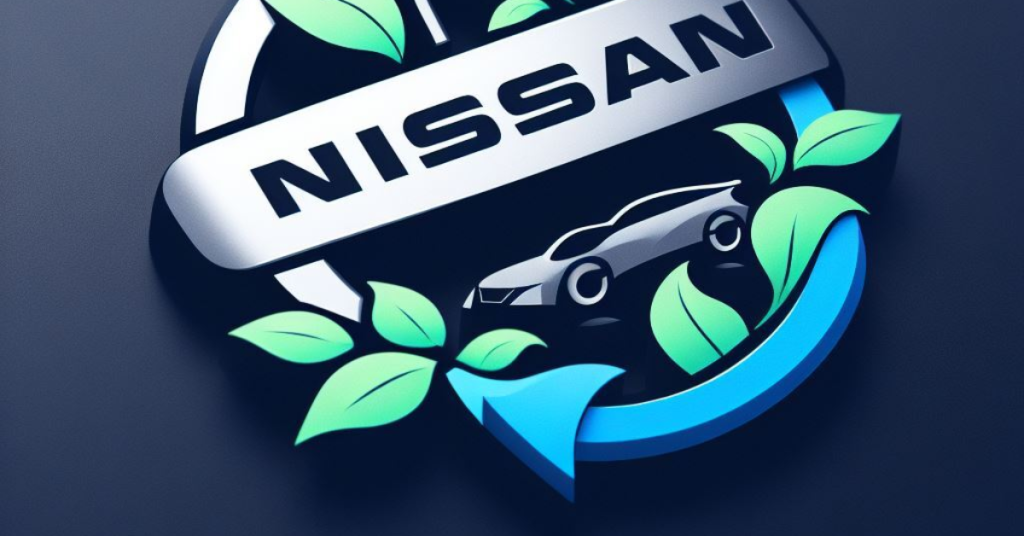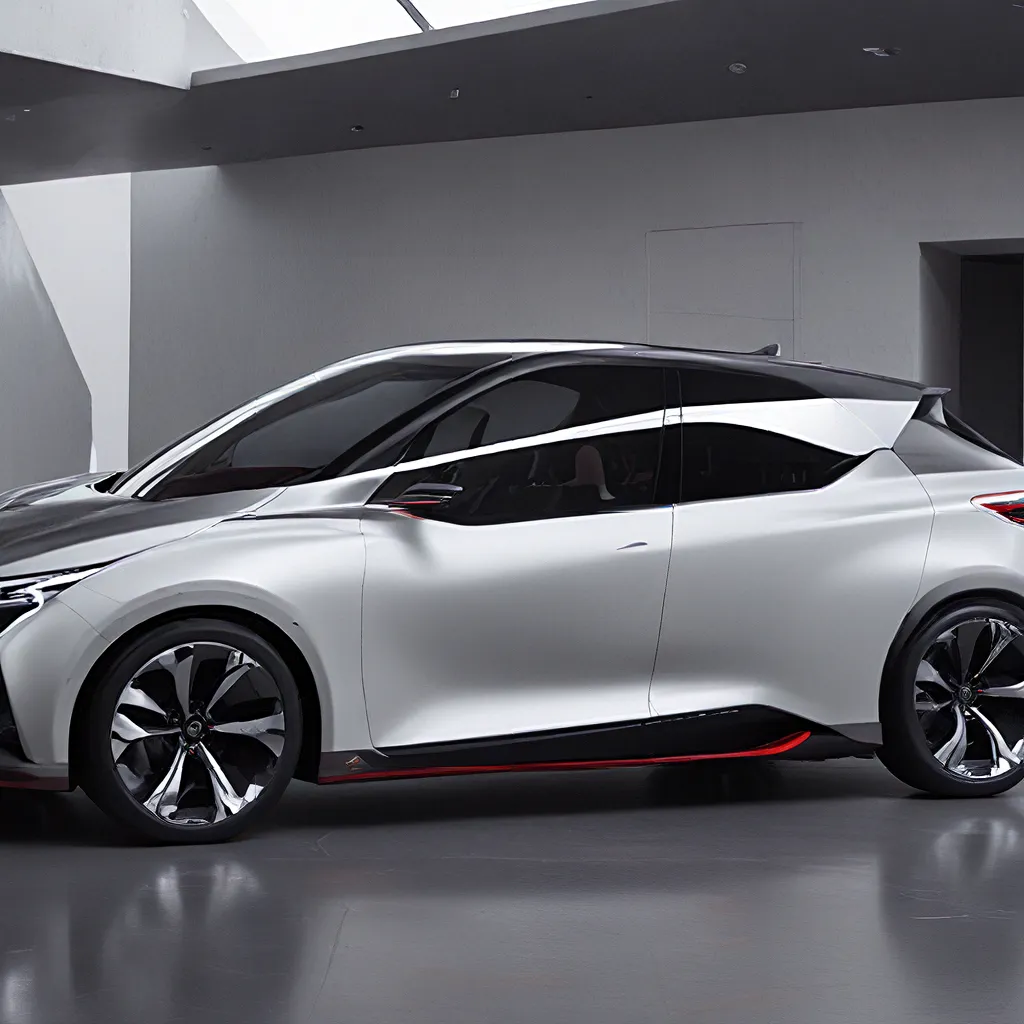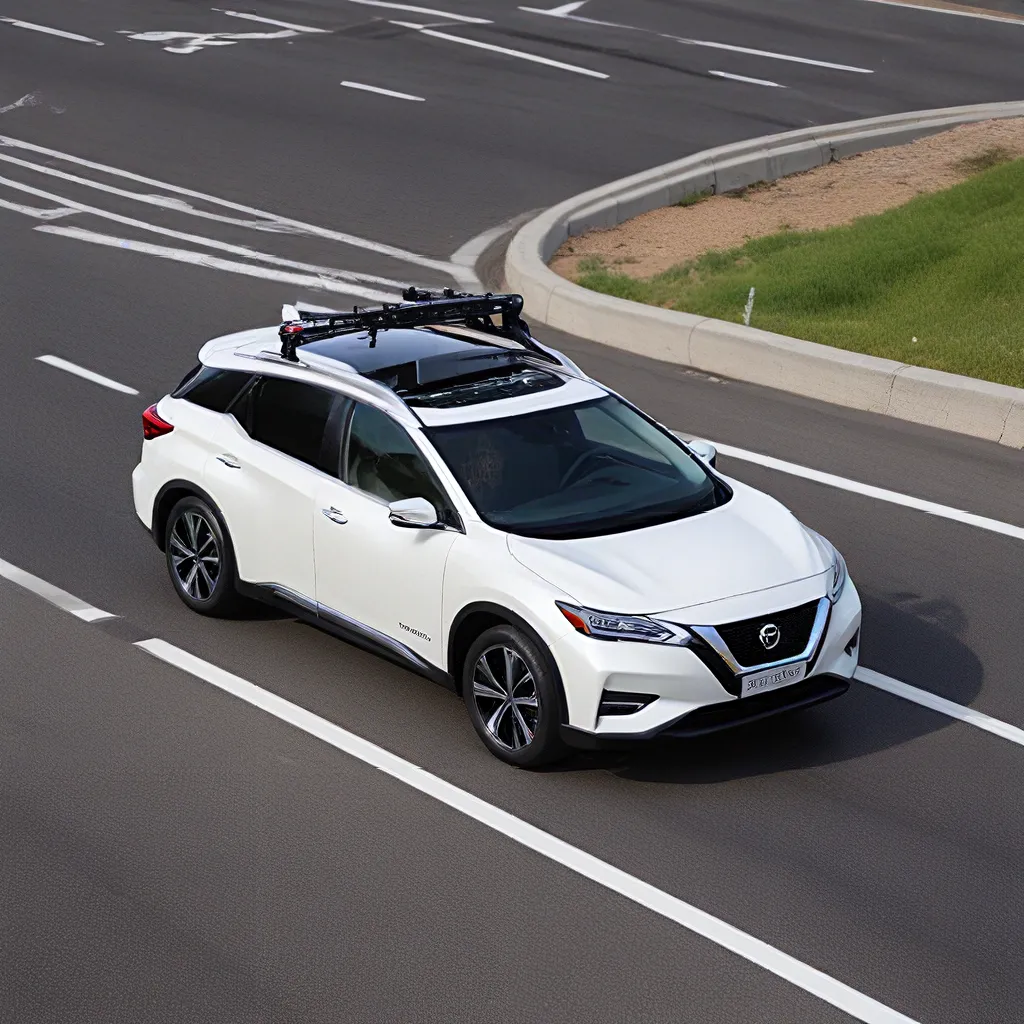
Envisioning a Sustainable Automotive Future
As I sit behind the wheel of my Nissan Leaf, I can’t help but feel a sense of excitement and anticipation for the future of the automotive industry. The steady hum of the electric motor, the smooth acceleration, and the knowledge that I’m driving a vehicle with zero direct emissions – it’s all a testament to Nissan’s unwavering commitment to sustainability.
Sustainability has been at the heart of Nissan’s business for years, and the company’s latest initiatives are truly taking the green revolution to new heights. From the Nissan Green Program 2030 to the Nissan Social Program 2030, the automaker is leading the charge in redefining the future of mobility.
Nissan’s Ambition 2030 vision places sustainability at the core of the business, with a clear focus on developing cleaner, safer, and more inclusive products, technologies, and services. This holistic approach to sustainability is evident in every aspect of the company’s operations, from talent management and supply chain to product design and the entire lifecycle of their vehicles.
Pioneering Electric Mobility
One of the most significant ways Nissan is empowering the green future is through its pioneering work in electric vehicles (EVs). The Nissan Leaf, introduced in 2010, was one of the first mass-produced, affordable, and practical EVs on the market. Since then, the company has continued to push the boundaries of electric mobility, constantly improving the range, performance, and affordability of its EV lineup.
Nissan’s commitment to sustainability extends beyond just the vehicles themselves. The company has invested heavily in the development of charging infrastructure and energy storage solutions, making it easier for drivers to adopt and integrate electric vehicles into their daily lives.
One of the most exciting aspects of Nissan’s electric future is the introduction of the Nissan Ariya, a sleek and sophisticated all-electric crossover that promises to redefine the driving experience. With its advanced ProPILOT Assist technology, the Ariya not only provides enhanced safety and convenience but also represents a significant step forward in the integration of sustainable mobility and autonomous driving capabilities.
Embracing a Circular Economy
But Nissan’s commitment to sustainability doesn’t stop at electric vehicles. The company has also been at the forefront of the circular economy movement, working to reduce waste and maximize the reuse and recycling of materials throughout the entire product lifecycle.
One of the most impressive examples of this is Nissan’s approach to battery recycling. As the demand for EVs continues to grow, the need for sustainable battery management becomes increasingly crucial. Nissan has developed innovative processes to recycle and reuse the valuable materials found in EV batteries, reducing the environmental impact and ensuring that these critical components don’t end up in landfills.
Fostering a Sustainable Supply Chain
Sustainability is not just about the end product; it’s also about the entire supply chain that supports it. Nissan has been diligently working to implement sustainable practices throughout its global operations, ensuring that its partners and suppliers are also aligned with the company’s environmental and social goals.
This commitment to sustainable sourcing extends to the materials used in Nissan’s vehicles, with a focus on using more renewable and recyclable materials. The company has also been exploring the use of innovative materials like biocomposites, which are made from natural fibers and can reduce the carbon footprint of vehicle production.
Empowering Communities
Nissan’s vision for sustainability goes beyond just the automotive industry; it’s about empowering communities and creating a more inclusive, equitable, and resilient future for all. The Nissan Social Program 2030 is a testament to this, with initiatives that address social issues such as diversity, education, and disaster relief.
One particularly inspiring example is Nissan’s work in support of electric mobility in underserved communities. By partnering with local organizations and governments, the company is helping to expand access to electric vehicles and charging infrastructure, ensuring that the benefits of sustainable transportation are shared equitably.
Conclusion: A Holistic Approach to Sustainability
As I reflect on Nissan’s unwavering commitment to sustainability, I’m reminded of the company’s holistic approach to this critical challenge. From pioneering electric vehicles and innovative battery recycling to fostering sustainable supply chains and empowering communities, Nissan is truly leading the charge in the quest for a greener, more sustainable future.
The road ahead may not be without its challenges, but with visionary leadership, a focus on innovation, and a deep sense of social responsibility, I’m confident that Nissan will continue to be a driving force in the global movement towards a more sustainable automotive industry.
And as I glide silently down the road in my Nissan Leaf, I can’t help but feel a sense of pride and excitement for what the future holds. The journey towards a greener tomorrow may be long, but with companies like Nissan leading the way, I know that the destination is well within reach.
Nissan is truly empowering the green future, one step at a time.






